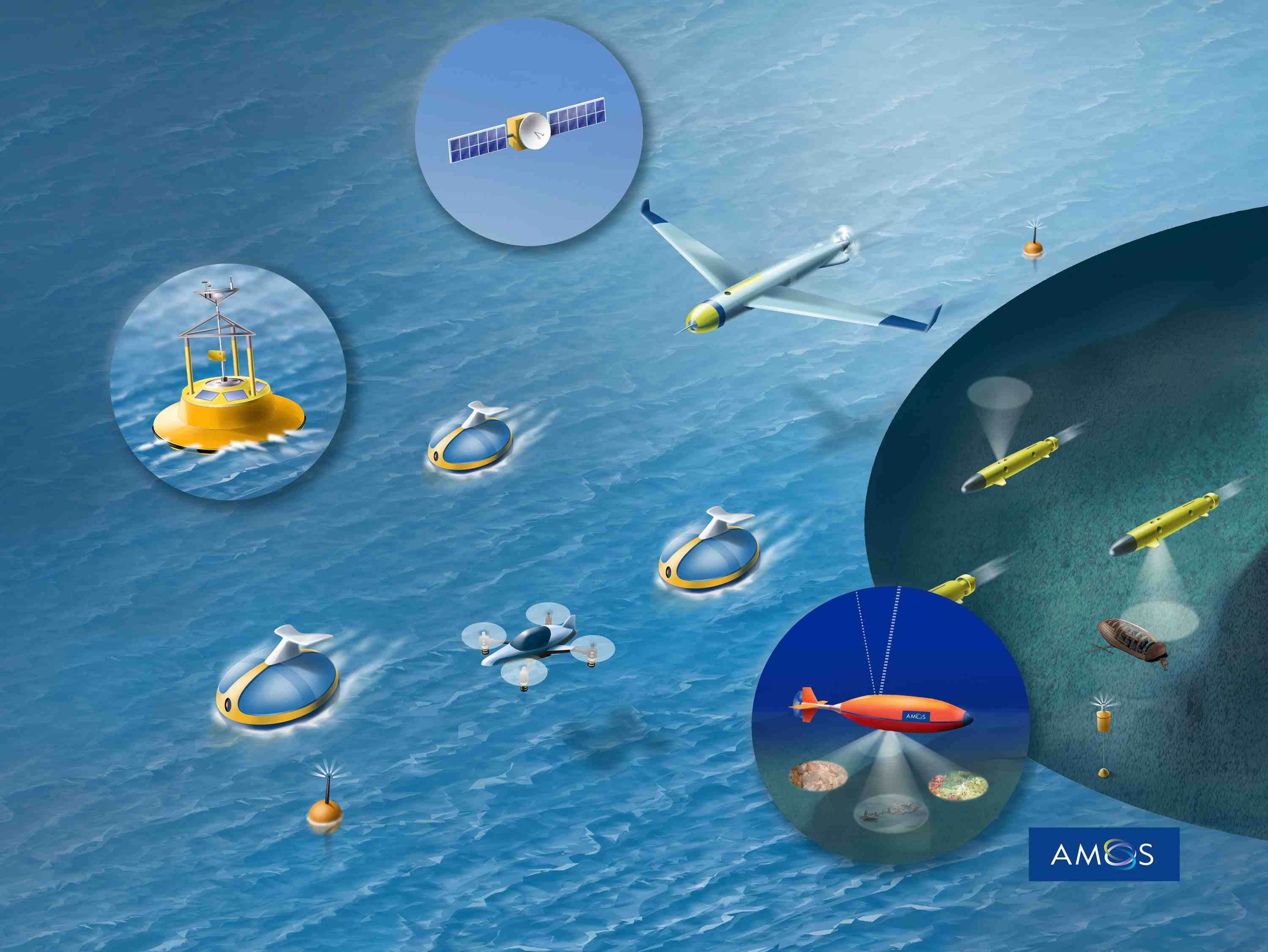IMT - UNLOCK
UNLOCK
Unlocking the potential of autonomous systems and operations through supervisory risk control
Project period: 2018-2023
Autonomous systems are emerging and essential for allowing new and challenging operations, such as mapping and monitoring of oceans and areas on land, inspections and interventions of structures difficult to access, and autonomous transportation, both land based and at sea. These very different operations involve a range of hazards and potential undesired consequences; from major hazard risk to occupational risk that may cause human fatalities and injuries, environmental and asset damage, and economic losses.
In the future, autonomous systems composed of advanced control, decision, and sensor systems, with increased intelligence will emerge. Producers need to develop overall methods and strategies for safe and reliable performance to ensure that the autonomous systems comply with requirements. Operators must be able to plan and execute safe and robust operations, but efficient risk control is currently not well understood. The industries and authorities need new methods, standards and guidelines related to autonomy as a basis for their activities and business development. Authorities must become proactive when it comes to regulating and follow up of the development and use of such technology. Acceptance and approval of highly intelligent systems with built-in learning and optimization capabilities require supervisory risk control and online risk modelling, testing and verification to become a driver in design, operation and overall system validation.
Aim
The UNLOCK project addresses supervisory risk control of autonomous systems and operations. The outcomes of this ambitious project will support and enhance the achievement of higher-level autonomy and intelligence in advanced control systems through the integration of online risk modelling, testing and verification of safe responses of the control system.
The interdisciplinary research approach in this project builds on the most powerful theories and methods in the fields of risk modelling, V&V, control engineering and autonomous systems. Case studies will focus on mapping and monitoring of the ocean by use of autonomous underwater vehicles (AUVs) and industrial inspection of structures using unmanned aerial vehicles (UAVs). It is expected that the fundamental research results will be applicable to a wide range of autonomous systems, far beyond AUVs and UAVs only.

Participants
Project manager
- Professor Ingrid Bouwer Utne
Principal Scientists
- Professor Ingrid Bouwer Utne
- Professor Tor Arne Johansen
- Professor Asgeir Johan Sørensen
Post-doctoral researcher
- Christoph Alexander Thieme - Risk modeling for supervisory risk control
PhD candidates
- Jens Einar Bremnes - Simulation and online verification (Tentative title; Supervision: Professor Asgeir Johan Sørensen)
- Sverre Velten Rothmund - Optimization of control system capabilities (Tentative title; Supervision: Professor Tor Arne Johansen)
Associated Post-doctoral researcher
- Alun Jones - Ecosystem modelling and indicators in the Barents Sea. Funded by the Nansen Legacy Project.
- Alozj Gomola - Software risk modeling for operational decision support in the SFI Autoship project.
Associated PhD candidates
- Ruochen Yang - Risk assessment of autonomous underwater vehicles (Tentative topic; Supervision: Professor Ingrid Bouwer Utne). Funded by the Nansen Legacy Project.
- Renan Guedes Maidana Risk Assessment for Decision-support in Automated Planning and Resource Management in Autonomous Marine Vehicles (Tentative title; Supervision: Professor Ingrid Bouwer Utne). Funded by SFF NTNU AMOS.
International Scientists
- Professor Ali Mosleh, The B. John Garrick institute for the Risk Sciences (UCLA, USA), Professor at NTNU
- Tristan Perez, Boeing company (formerly professor at the Institute for Future Environments - Queensland University of Technology, Australia)
- Professor Murat Arcak, University of California Berkeley (USA)
Partners
- NTNU AMOS
- Department of Marine Technology, NTNU
- Department of Engineering Cybernetics, NTNU
- ORCAS (Online Risk Management and Risk Control for Autonomous Ships, contact: Ingrid Bouwer Utne)
- SFI Autoship
Publications
Find the project's publications in CRISTIN.
Funding
The UNLOCK project is funded through the Research Council of Norway FRINATEK (The Granting Committee for Mathematics, Physical Sciences and Technology) scheme in the Period Q1 2018 to Q4 2023. Project number 274441.
Project Manager and Principal Scientist
Post-doctoral researchers
PhD candidates
Associated Post Docs and PhD candidates
Partners
- NTNU AMOS
- Risk group at the Department of Marine Technology
- Department of Engineering Cybernetics
- ORCAS (Online Risk Management and Risk Control for Autonomous Ships)
